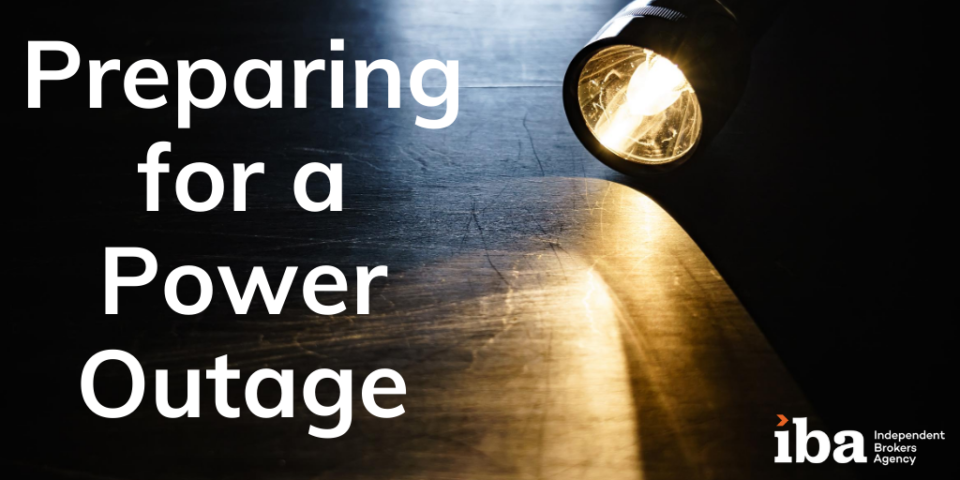
Preparing for a Power Outage
Storms can bring damaging winds, heavy rain, and lightning. All have the potential of causing power outages. When the power goes out, it can be frustrating and problematic. While you cannot control the weather, you can provocatively prepare your home for a blackout. Consider these tips to minimize loss and keep your family and home safe if the power does goes out.
Develop a household emergency plan. Make certain all family members know what to do in the event of a blackout. Verify that everyone understands their specific role. Walk through possible scenarios, including evacuation.
Assemble an emergency preparedness kit. Keep your kit where you can access it readily. Kits should include:
- One gallon of water per person for at least three days
- Nonperishable food for each person to last at least three days
- Flashlights, extra batteries
- Cellphone and chargers (keep wall, car, and portable chargers on hand)
- First-aid supplies, extra medication
- Sanitation/personal hygiene items
- Emergency contact information for family, friends, local authorities, local utility providers
- Copies of important personal documents
As you put together your kit, include items for your pets. Follow the American Red Cross’s guidance for preparing pets for an emergency.
Keep a battery-powered or hand-crank radio easily accessible. While you may be able to stream NOAA radio broadcasts or local news on your cellphone, you will want to conserve your phone’s battery. Keep a radio on hand to stay up to date with the latest weather and safety alerts.
Utilize UL-listed surge protectors throughout the home to safeguard expensive electronics (TVs, gaming consoles, computers, etc.). During a storm or power outage, unplug or turn off electronics and small appliances.
Prepare to properly store food during an outage. If your power does go out, keep the freezer and refrigerator closed as much as possible to keep food cold. Pack your food in ice (either in a cooler or refrigerator/freezer) during an outage to keep it cooler for a longer period of time. Visit FoodSafety.gov for information on food safety during an outage.
Consider investing in a home generator to power critical equipment such as refrigerators and sump pumps running during an outage. Make sure to do your research before purchasing. Ensure that it is rated for the power your home needs and that you know how to operate it safely before a blackout occurs. If you do have a generator (or even if you do not!), install carbon monoxide alarms in central locations throughout the home and outside all bedrooms.